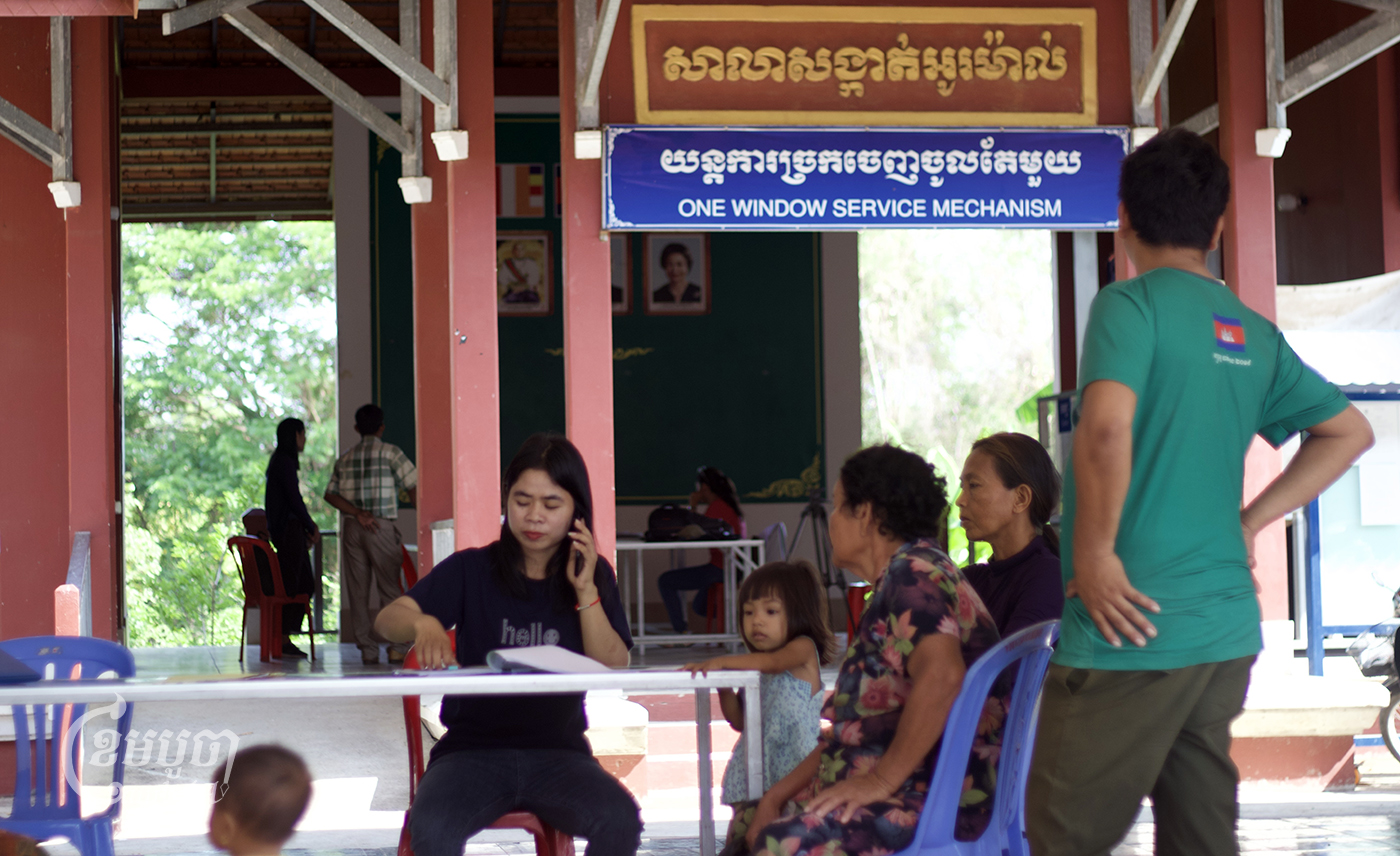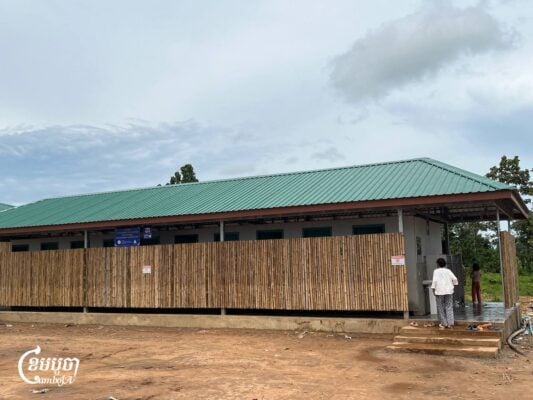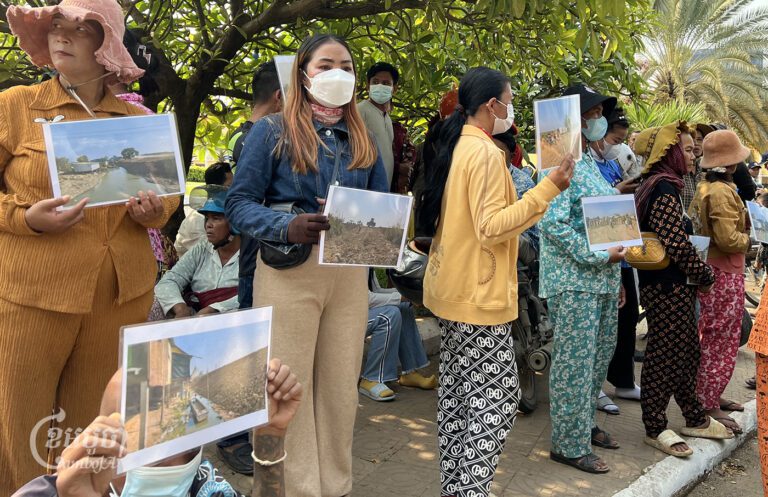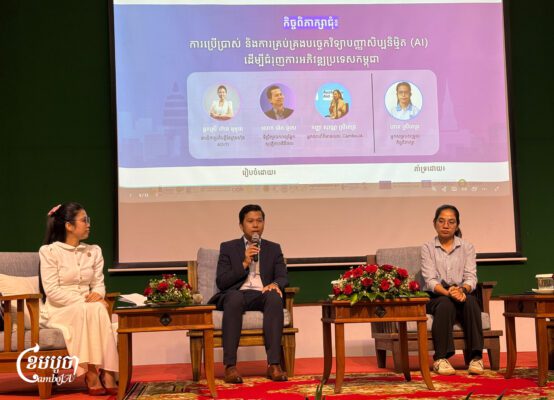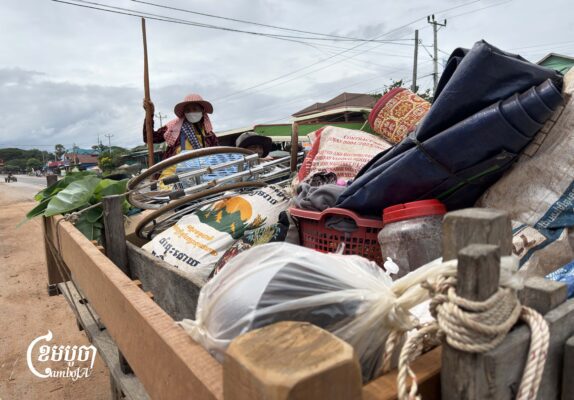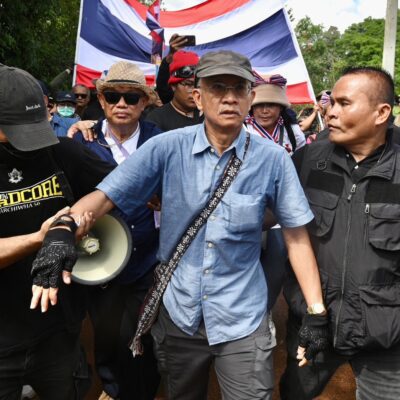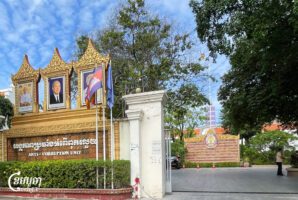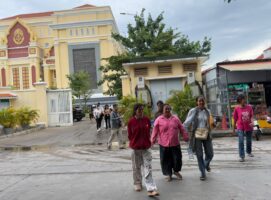Sangkat O’Mal authority in Battambang City and several residents have highlighted the lack of availability for the use of the annual commune budget to develop infrastructure to meet the needs of the people. In fact, the previous budget was also not enough to build roads or sewers as planned.
Choeun Sovong, a member of the O’Mal commune council, told CamboJA News that the commune’s funds were too small to cover the people’s needs, requesting for more national funds for commune development.
Sovong said most of the budget is spent on social services, women’s affairs and healthcare. Obviously, he added, the budget for 2024 to build roads is not sufficient, and he has “honestly” informed people about this.
At the same time, the commune raised additional funds while waiting for the national budget next year to build as many roads as possible. Sovong stated that the 2024 national budget allocation to the local level, such as for O’Mal Sangkat, was 757 million riel (approximately $184,652). About 393 million riel went to economic development and 11 million riel for social services.
“Actually, this budget is not enough for local development as per the wishes of the local people,” he said. “For the construction of concrete roads in a year, we can build just nearly 100 meters and we’ve another 70 meters to complete. So, we do about 35 percent a year but still owe about 65 percent.”
For the needs that were not met this year, they will be raised next year when the commune receives funds from the national level to build in accordance to the ability and in stages. There are 10 villages with a population of around 11,947 people, therefore road usage is high.
But when the development budget is small, it cannot meet the needs of the people, so the authorities raise more money from the people. Communes and village authorities often hold programs to seek help from philanthropists and organizations through social media. In addition, schools celebrate Solidarity Flowers Festival to raise funds.
“Regarding the development of road infrastructure, the authorities have a hard time because the annual budget of the commune is too small while the needs of the people are high, so I urge the national government to increase the development budget,” Sovong said.
As a resident of O’Mal commune, Sum Som, 43, believed that the annual budget allocated by the government to each commune is not the same and requires more mobilization from the people as well. He said due to the limited budget, the commune has almost no budget to implement the project in the commune that has not been mentioned.
“Each year, the commune spends two main budgets – infrastructure and salary of commune councilors. As for the needs of the people, there are many, but what the commune authority can solve is the main canals and sewers, so they only did it for one year [before] running out of money,” Som said.

In order to improve the development of communes and respond to the needs of the people in a timely manner, the government should allocate additional funds to communes with higher needs, such as the one he lives in.
“I would like to ask the government to increase the budget. Obviously in my neighborhood, I see money being collected from the people while some people are poor, so [I think] some of the burden is on us, not the [state] as a service provider [who take action and develop],” he said
Flooding, bad smell and mosquitoes
As the head of 20 Usaphea village in Svay Por commune, Him Seiha said in some areas, there is no infrastructure development, drainage system for some roads as the budget is limited.
“It is very important because roads need repairs and we need to build new ones. Some roads do not have a drainage system to release water when it rains and floods people’s houses but we do not have the budget, so they experience a difficult life,” he shared.
However, he expects that in the following years, his district might receive more funds to build roads and an additional sewer system to serve the people.
“If there is more budget, it is better for the development of villages and communes. In other words, we are limited in terms of salaries and social costs, so what is the remaining percentage for development? It is not enough for development, as people have a poor standard of living,” said Seiha.
Nget Sao Kanha, a resident of Kampong Chhnang province, raised similar concerns regarding the limited government budget in the communes amid the rise of the people’s needs.
She said in the neighborhood where she lives, there is no drainage system, so during the rainy season, people face floods which affect people’s well-being.
“The problem in my commune is drainage and the commune does not have the budget to build,” she said. “The budget is to build only roads but not for the sewerage. But when they want to build the sewerage, they dig up the road, so it’s spending the wrong amount of money,” said Kanha.
“Some people also complained about raising money for the Red Cross, but I believe that if the authorities make a reasonable interpretation when raising money to build the sewer system, I think people will participate because it is a big problem for the people of Kampong Chhnang.”
When people’s houses in the villages have only roads but no drainage system, during the rainy season, the water flowing to the houses causes bad smell, mosquitoes and affects the health of children. Some children have also died because of the flood.
Kanha urged the authorities in the commune to work together to resolve problems and serve the people without having to push the problem around.
Speed up decentralization
Meas Sok Sensan, spokesperson of the Ministry of Economy and Finance, could not be reached by CamboJA News via telephone.
According to a circular issued by the Minister of Economy and Finance in May 2024, five provincial administrations, including Phnom Penh, Sihanoukville, Kandal, Kampong Speu and Banteay Meanchey, will face credit cuts in the 2024 budget by 66 billion riel (approximately $16 million).
Separately, other provincial administrations need to carefully monitor the usage of their budget by reducing unnecessary administrative operating costs in order to rebalance the budget.
Yong Kim Eng, executive director of the People’s Center for Development and Peace, said communes should have their own reserves. Currently, communes are completely dependent on the national budget, thus it becomes a barrier to development due to inadequate funds.
“Due to the slow process of decentralization in the commune, the commune is short of money and depends on the national level. Normally, some taxes at the sub-national level can be taken and used for development,” Kim Eng said.
He added that the authorities should implement projects for people who need them urgently. All projects need not be nationally implemented, meaning that “the government must speed up the decentralization of finance to sub-national levels”. It should allow them to have more responsibilities with finances. “But, at the moment, they don’t have the power to manage the budget.”
According to the General Department of Budget of the Ministry of Economy and Finance, the budget for the second phase implementation of the National Program (2021-2030) in 2022 to sub-national administrations increased by more than $1 billion. Each municipality received an average of $570,000 per year and each commune received $127,000 per year.
In 2023, the state provided additional subsidies to each commune of 633 million riel or about $156,420. The average commune development budget was 358 million riel or equivalent $88,000 per year, an increase of 22.2 percent compared to the 2022 national budget.

